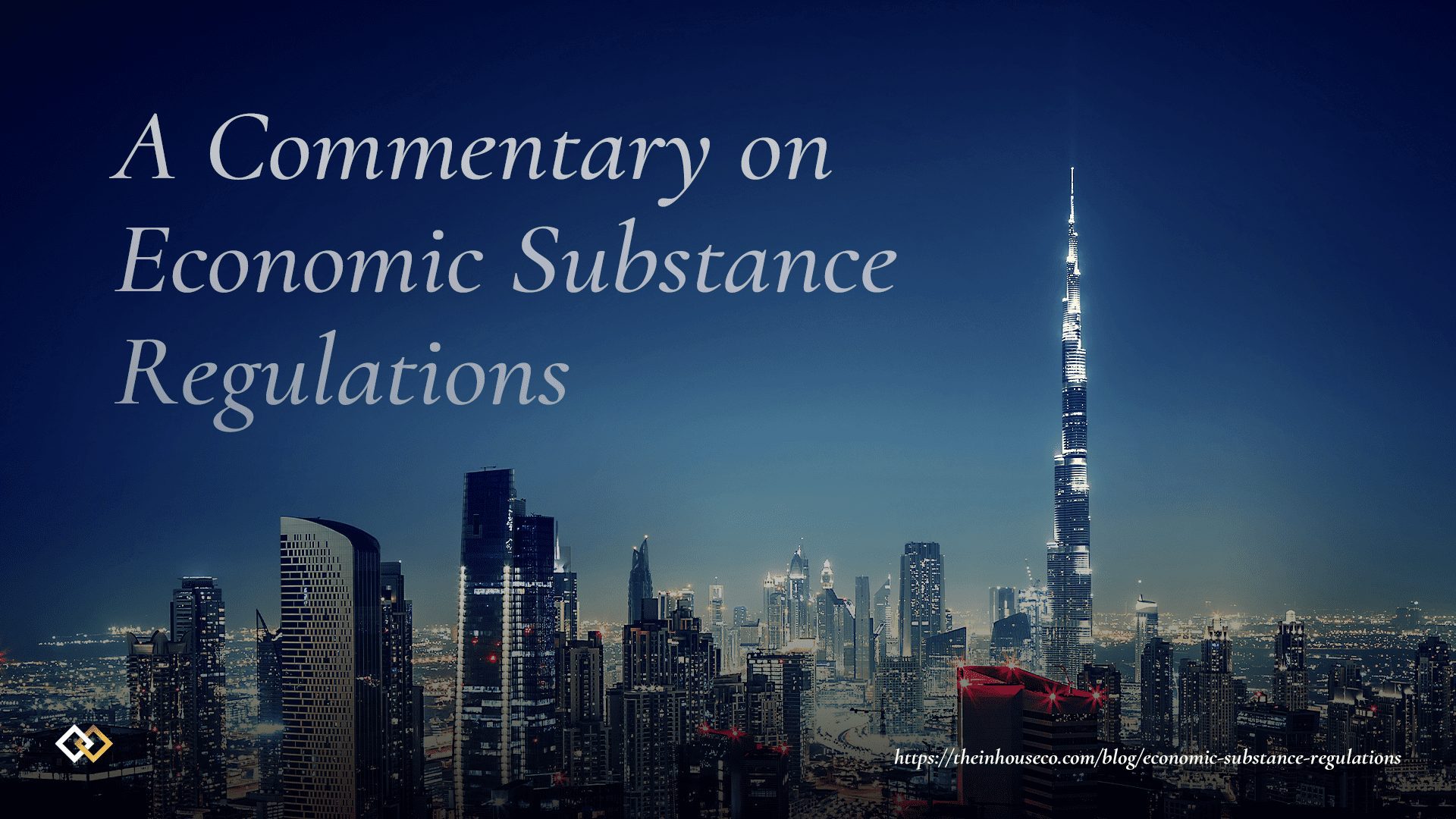| Subject Matter |
Previous Law
Federal Law No. (8) of 1980 |
New Law
Federal Decree Law No. 33 of 2021
(effective as of on 02.02.2022) |
Supplemental Regulations
Cabinet Resolution No. 1 of 2022 |
ANY EMPLOYER ACTION REQUIRED |
| Length of Contracts |
Unlimited term and
Limited term |
- ONLY Limited Term Contracts for a maximum period of 3 years.
- Automatic renewal of the term is implied in cases where the parties have not negotiated an extension.
|
|
By 2 February 2023:
- Employers must convert all exiting unlimited term contracts to fixed term contracts.
- Any contracts not done so will automatically take effect as limited term contracts.
|
| Types of Work |
Full Time
Part Time
Daily Working
Piecemeal |
Full Time
Part Time
Temporary Working
Flexible Working |
Job sharing inserted as a fifth alternative employment arrangement. |
– |
| Working Hours |
8 hours per day/
48 Hours per week |
8 hours per day/
48 Hours per week
OR
40 hours a week (condensed working hours model) |
Exemption from the New Law provisions may be granted to:
- Chairmen of the board of directors and board members
- Employees who occupy supervisory positions (such that they represent the employer)
- Crew of naval vessels and employees who work at sea who have special conditions of service due to the nature of their work
- Businesses which require employees to be involved in shift work or tour guides (in which working hours do not exceed 56 per week)
- Preparatory or complementary works that must be carried outside the normal working day.
|
– |
| Work Permits |
|
|
Introduction to 12 new permits:
- For individuals recruited from outside UAE.
- Transfer work permit for expat employees who are transferred to and from an employer registered with MOHRE.
- Dependant permits for individuals whom are sponsored residency purposes by a dependant.
- Temporary work permit where time and project is a determining factor in length of employment.
- Task work permit for temporary recruitment outside UAE.
- Partial work permit for part-time contract.
- Juvenile work permit for ages between 15 and 18.
- Student training and employment permits.
- Work permits for UAE and GCC nationals.
- Work permits for golden residency holders.
- Work permits to train UAE national pursuant to an approved scientific qualification.
- Self-employment permits for individuals who are self-employed.
|
|
| Work Regulations |
- Employer’s obligation must have in place disciplinary rules which set out the circumstance in which disciplinary sanctions may be imposed.
|
|
- Broadened the employer’s obligations to include any regulations required to organise work such as (i) work instructions including daily work hours, weekends, holidays, health and safety precautions; (ii) penalties imposed for breach of terms of their employment, (iii) list of criteria and controls for promotions and rewards and (iv) procedures to be followed prior to the termination of any employee’s employment.
These regulations only apply to employers who employ over 50 employees. |
|
| Probation Period |
- Maximum 6 months
- Summary Dismissal by Employer: Termination effective immediately
- Termination by Employee: No provision
|
- Maximum 6 months
- Summary Dismissal by Employer: 14 days’ notice
- Termination by Employee: 30 days’ notice if inside the country, 14 days’ notice if leaving the UAE
|
|
- All recruitment costs need to be paid by the employer.
- If employee leaves with no notice, a one year ban on obtaining a work permit
|
| Wages |
- No minimum wage
- Payable in UAE Dirhams into UAE bank account
|
- Minimum wage to be determined
- Wages may be paid in another currency if agreed between parties
|
|
– |
| Annual Leave |
- Unused leave may be carried forward to the following year
|
- Employee must use leave in the current year
- Carry over of unused leave is subject to employer approval
- If 1 month notice given by employer, employees can be requested to take annual leave on specified days.
- Leave is calculated pro rata for part tie workers
|
Annual leave for part time employees calculated in reference to number of hours they are contracted to work:
- Total number of hours to be worked will be converted to working days (one working day being equivalent to 8 working hours)
- Total number of working days is divided by the number of working days in a full time calendar year.
- This figure is multiplied against the full time equivalent annual leave. entitlement.
- Annual leave for part time employees must be a minimum of 5 working days.
- Where the employer agrees to carry forward leave, the carry forward must not exceed half of the employee’s annual leave entitlement.
|
– |
| Maternity Leave |
- 45 days with full pay if period of employment service is more than one year.
- If service is less than one year then 45 days with half pay
|
- 60 days: 45 days with full pay and 15 days with half pay
|
|
– |
| Maternity Leave
Pregnancy Related Sickness |
– |
- 45 days extension on top of 60 day maternity leave (without pay)
|
|
– |
| Maternity Leave
Disabled or sick child |
– |
- 30 days of leave with full pay after 60 days maternity leave +30 days extension without pay
|
|
– |
| Maternity Leave
Stillbirth or Miscarriage |
– |
- 60 days: 45 days with full pay and 15 days with half pay
|
|
– |
| Maternity Leave
Nursing Breaks |
- 2 breaks of 30 mins each for 18 month
|
- 1 or 2 breaks not exceeding 1 hour for a period of 6 months.
|
|
– |
| Compassionate Leave |
– |
- 5 days paid leave in event of death of spouse
- 3 days paid leave in the event of death of parent, grandparent, siblings, children or grandchildren.
|
|
– |
| Study Leave |
– |
- 10 business days paid leave if employment service is more than 2 years.
- Employee must be enrolled in an education institution approved by UAE.
|
|
– |
| Pilgrimage Leave |
- 30 days unpaid leave
- Can only be taken once during duration of employment
|
- With employer’s consent, employee can opt for unpaid leave (Article 33 – any other leaves)
|
|
– |
| Discrimination |
- Protection from discrimination if dismissal is due to pregnancy or maternity leave
|
- Prohibition of discrimination on the grounds of race, colour, sex, religion, nationality, social origin or disability.
|
|
PENALTY ON EMPLOYERS:
Fines ranging from AED 5,000 to AED 1,000,000 |
| Bullying and Harassment |
– |
- Prohibition of sexual harassment, bullying/verbal coercion, threatening physical or psychological violence
|
|
PENALTY ON EMPLOYERS:
Fines ranging from AED 5,000 to AED 1,000,000 |
| Non-Compete Clause in Contract |
- Not mandatory to have a non-compete provisions.
- If existence of non-compete provisions then these must be limited in time, place and type of work
|
- Former employer is bound to execute a Non-Compete Agreement with a maximum restrictive period of 2 years from date of termination.
|
- The non-compete must confirm (i) nature of the work; (ii) the geographical scope; and (iii) the duration of the restriction.
- Only applies in cases where the employee resigns from their employment (unless the reason for termination by the employer is due to the employee’s breach of his legal or contractual obligations).
- The non-compete may be waived by mutual agreement where:
- The employee or his new employer pays the ex-employer compensation of up to three months’ total salary;
- The employer terminates the employee’s employment during his probation period;
- For any “occupational categories” pursuant to the needs of the labour market in the UAE as determined by the Minister of the MOHRE.
|
Non-Compete Agreement required to be signed with employee. |
| End of Service Gratuity (ESG) |
- 1-3 years of employment=1/3 entitlement of ESG
- 2-5 years of employment= 2/3 entitlement of ESG
- 5 years + of employment = full ESG entitlement
|
- Resigning employee: Full ESG payment entitlement.
|
- Prorating of ESG for part time and job sharing employees.
- Calculation:
- Total number of hours to be worked per year converted to working days
- Total number of working days is divided by number of working days in a full time calendar year.
- Multiplied against the full time equivalent ESG.
|
All entitlements to be paid by employer within 14 days.
Failure to do so means fines of AED 5,000 to AED 1,000,000 |
| Termination
Unlawful Termination |
- Compensation awarded to employee if dismissal was arbitrary
|
- Termination is deemed unlawful if:
- It was as a result of the employee filing serious complaint against employer
- It was the result of filing a case against the employer which was successfully upheld.
- Compensation capped at 3 months’ wage.
|
|
– |
| Termination
Redundancy |
– |
- Redundancy: If employer is bankrupt or insolvent or economic or exceptional reasons.
|
- The issuance of a court ruling confirming that the employer is bankrupt or insolvent.
- The issuance of a decision by the UAE authorities confirming that the employer is unable to continue the activity for any exceptional economic reason beyond his control.
|
– |
| Termination
Notice/Warning Period |
- Compensation (equivalent to employee wage for notice period) for employee if employer fails to serve notice
|
- Notice period- compensation (equivalent to employee’s wage for entire warning period) to be paid to employee
|
|
– |
| Termination
Without warning or notice period |
- If a breach of Article 120 has occurred.
|
- Employer can terminate with no notice if employee:
- assumes false identity or submitted counterfeit documents
- commits an error resulting in gross material loss.
- admits to purposely damaging employer’s property
- violates employee safety rules
- fails to perform duties as per the contract.
|
|
– |
| Termination
ESG entitlement |
- Employee not entitled to ESG if terminated under Article 120.
|
- Employee entitled to ESG even in cases of termination under Article 44 (disclosing trade secrets resulting in loss of opportunity, under influence of drugs or alcohol in premises, portrayal of immoral behaviour in premises, verbal/physical assault on another employee, absent for over 20 consecutive days without legitimate reason, misuse of position for personal gain, joins another company without following due process)
|
|
– |
| Termination
Employee leaving without warning |
- Employee allowed to leave without warning if one of the Article 121 circumstances are present.
|
- Additional grounds included to Article 121 circumstances:
- threatening safety and health of employee
- performing work different from job description and without consent
|
|
– |
| Labour bans |
- An expatriate employee who abandons his work without a valid reason, or without working his contractual notice period is not permitted to take employment for one year of abandonment.
|
- MOHRE may not permit individuals to obtain a work permit if they resign from their employment during probation period or for an illegal reason.
|
- The labour bans shall not apply (i) where the individual is of the skill, professional, or knowledge levels required by the UAE; (ii) to individual sponsored for residency purposes by a dependant; (iii) to golden visa holders; and (iv) any occupational categories as determined by the Minister of the MOHRE approved by the UAE Cabinet.
|
|
| Judicial Fees Exemption |
– |
- Employees exempt from judicial fees up to maximum value of AED 100,000
|
|
– |
| Repatriation Costs |
– |
- Employer to bear cost in the event of employee’s death.
- Employer to pay all employee’s due to the family within 10 days of death
|
|
– |
| Disciplinary Process |
- Sets out the process the employer should follow before imposing any sanctions on the employee
|
- Lists the sanctions that can be imposed by employer but does not state the guidelines that should be followed before taking action.
|
- Sets out a similar process as stated in the Previous Law in which the employer should follow before imposing sanctions:
- Employee has been notified of the allegation in writing
- The employee’s representation has been heard, employee’s position has been investigated
- the process is recorded in a written report and placed in the employee’s personnel file
- the employee is notified in writing of the details of the penalties imposed such as amount, type, reasons of the penalty, potential penalties in case of repetition of the violation.
Sets out the criteria to be followed in determining the suitable penalties to be imposed according to the misconduct of the employee (extent of breach of confidentiality, impact of the violation on the health and safety of employees, financial impact of the violation, effect of the violation on the reputation of the employer and its employees, exploitation of authority entrusted to the employee, whether the violation is repetitive and the existence of a criminal or moral part in the misconduct)
- Employer must put in place appropriate complaints or grievance process if they employ 50 or more employees.
- Employees are able to internally appeal any disciplinary penalty imposed against them. The Regulations provide that the employer should not suffer any detriment from an appeal being raised and that the employer must make the employee aware of the outcome of the appeal.
|
- Employer must put in place an appropriate complaints or grievance process if they employ 50 or more employees.
- Implement an internal system in which employees can appeal any penalty imposed.
|
| Labour Disputes |
Employee must raise an informal complaint to the relative labour authority prior to a formal claim being filed before the Labour Court, |
Similar to the Previous Law. |
In the case that an employee continues work during a labour claim, MOHRE can oblige the employer to either pay the employee two months wages or refer the complaint to the court. |
|
| Right to remain in UAE |
– |
- Employer is prohibited from forcing employee to leave the country after contract termination.
- Illegal to hold employee’s passport
- Employer cannot confiscate employee’s official documents.
|
|
– |
|
Further supplemental regulations have more recently been introduced (with specific details yet to be published):
- Applicable to firms with 50 employees or more: internal policies are required to be put in place which govern disciplinary procedures, grievances, health and safety, bonuses, salary reviews, working hours and holidays.
- The ability to add new clauses to the MoHRE template contracts
- To be compulsorily included in employment agreements: pay, benefits, allowances, annual leave entitlement, working hours/days, notice periods and termination processes.
- Further clarification of time, work type and geographical limits in non-compete clauses.
- Rights to overtime and overtime pay exemptions
- Exceptions to rights of paid sick leave
- Carrying forward and payment in lieu of unused leave
- End of service gratuity
- Health and safety and workplace injuries
- Flexible working arrangements
- Work permits
|



















